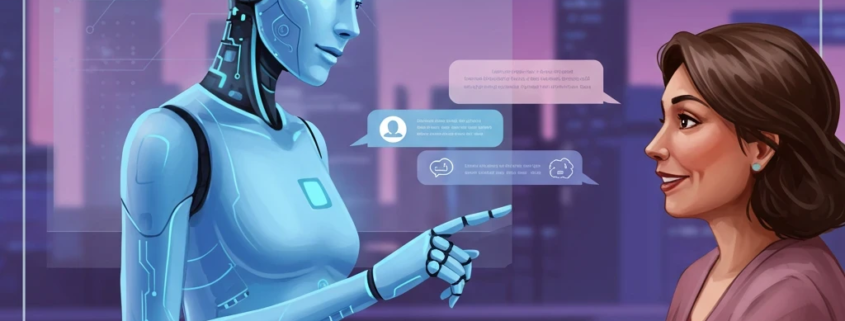Are Customers Turned Off by AI Voice Agents? The Truth Backed by Real-World Data
AI-powered voice agents are becoming more common in customer service, but do customers actually like interacting with them? While some fear that AI-driven calls might feel robotic or impersonal, research tells a different story. Let’s dive into the real-world data to see how customers perceive AI voice agents—and when they actually prefer them over human agents.
Do Customers Trust AI Voice Agents?
The perception of AI voice assistants has evolved rapidly. Recent studies show:
- 📊 58% of consumers are comfortable with AI handling their customer service interactions (PwC)
- ⏳ 70% of customers expect faster service from AI than from human agents (Salesforce)
- 😊 69% of consumers report being satisfied with AI-driven support—provided it resolves their issue efficiently (Capgemini Research Institute)
While skepticism still exists, acceptance is growing—especially when AI is designed to provide quick, effective resolutions.
When Do Customers Prefer AI Over Human Agents?
AI voice assistants shine in certain areas where speed, efficiency, and availability matter most. Customers often prefer AI-driven interactions when:
- ✅ They need a quick answer – AI provides instant responses for FAQs like order status, store hours, or appointment confirmations
- ✅ They don’t want to wait on hold – AI eliminates long wait times
- ✅ The task is straightforward – AI handles simple tasks like payment processing or resetting passwords
- ✅ They need 24/7 support – Unlike human agents, AI is always available
Real-World Example: AI Success
🚗 Domino’s AI-Powered Ordering System – Domino’s Pizza introduced an AI-powered voice assistant named “Dom” to take phone orders, improving accuracy and speeding up service during peak hours.
🛍️ Lowe’s Virtual Assistant for In-Store Assistance – Lowe’s added an AI voice agent to its mobile app to help customers find products in-store, improving satisfaction and reducing frustration.
When Do Customers Prefer a Human Touch?
Despite AI’s strengths, there are still situations where customers prefer human interaction:
- 🔹 Emotionally charged issues – Complaints, disputes, or sensitive matters require empathy
- 🔹 Complex problem-solving – Situations that don’t fit predefined categories often need a human
- 🔹 Sales & relationship-building – Upselling and personalized consultations are more effective with human interaction
Real-World Example: AI Limitation
🏥 Health Insurance Claims Processing – While AI voice agents can manage basic claim status inquiries, customers dealing with complex billing issues still prefer speaking to a human who can offer clarity and empathy.
🏨 Luxury Hotel Reservations & Custom Requests – Customers with personalized or special accommodation needs often prefer the human touch of a concierge over a scripted AI flow.
How to Make AI Voice Agents More Customer-Friendly
To create better AI-driven voice experiences, businesses should:
- 🗣 Use natural, conversational AI that avoids robotic tone
- 🔄 Enable seamless handoffs to human agents when needed
- 📊 Continuously train and refine AI systems based on real interactions
Final Verdict: Are Customers Turned Off by AI Voice Agents?
The data is clear: Customers are not turned off by AI voice agents—if the experience is designed well. People appreciate AI for quick, simple tasks and 24/7 support. But for complex, emotional, or high-touch scenarios, human agents still matter.
🚀 The key is balance. Businesses that use AI voice agents effectively—while maintaining human support when it counts—are seeing real improvements in satisfaction, efficiency, and cost savings.

Leave a Reply
Want to join the discussion?Feel free to contribute!